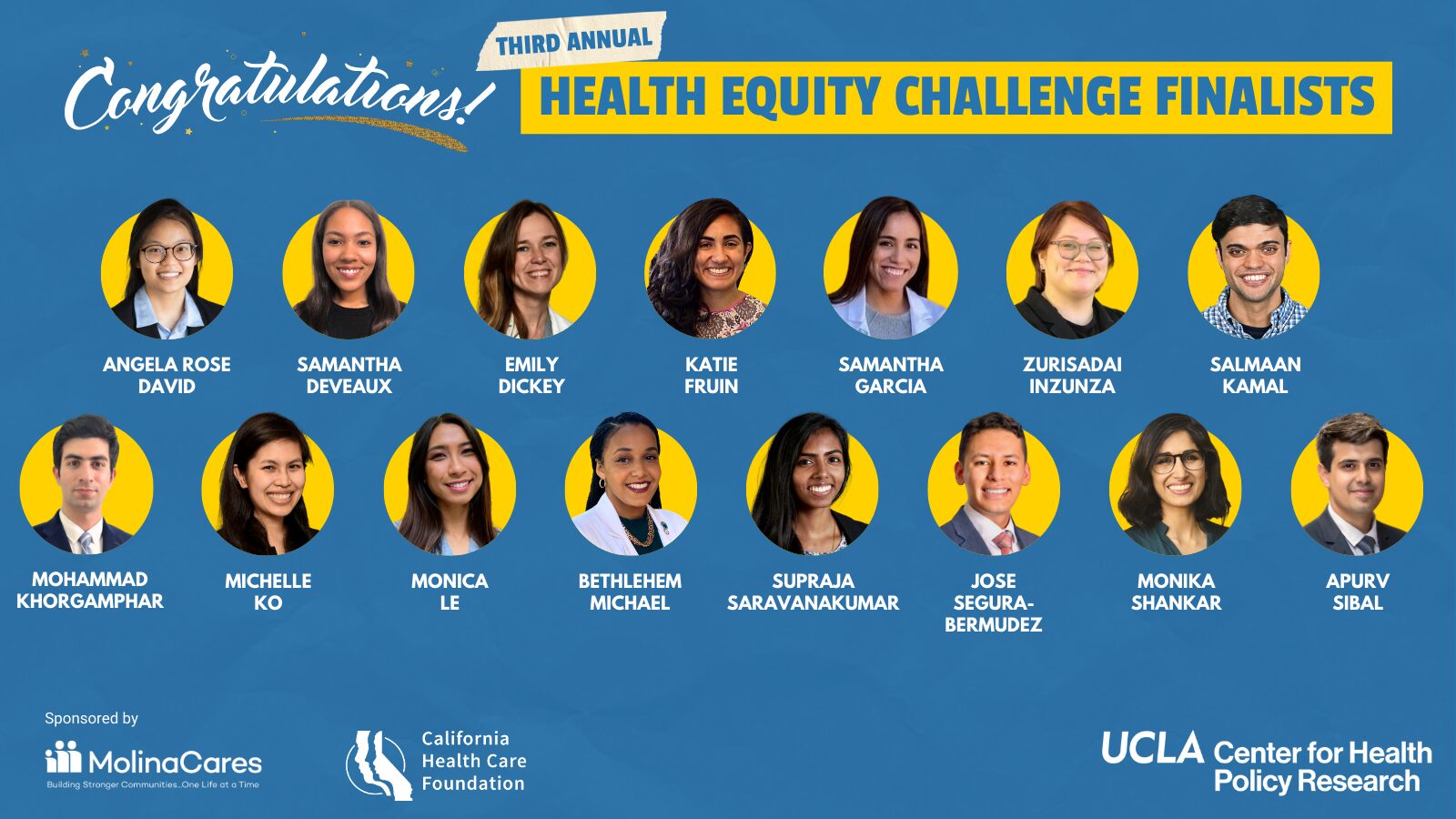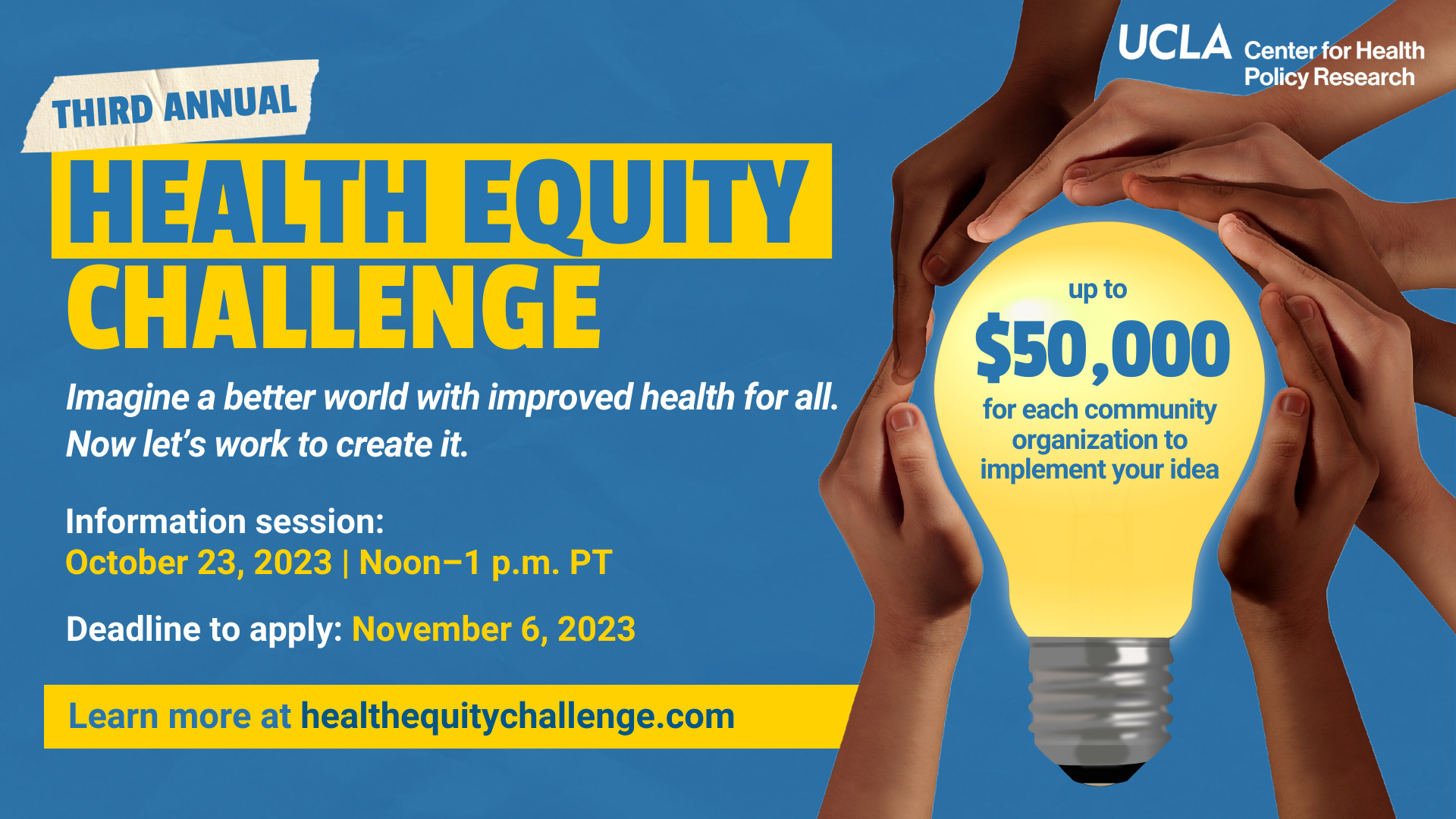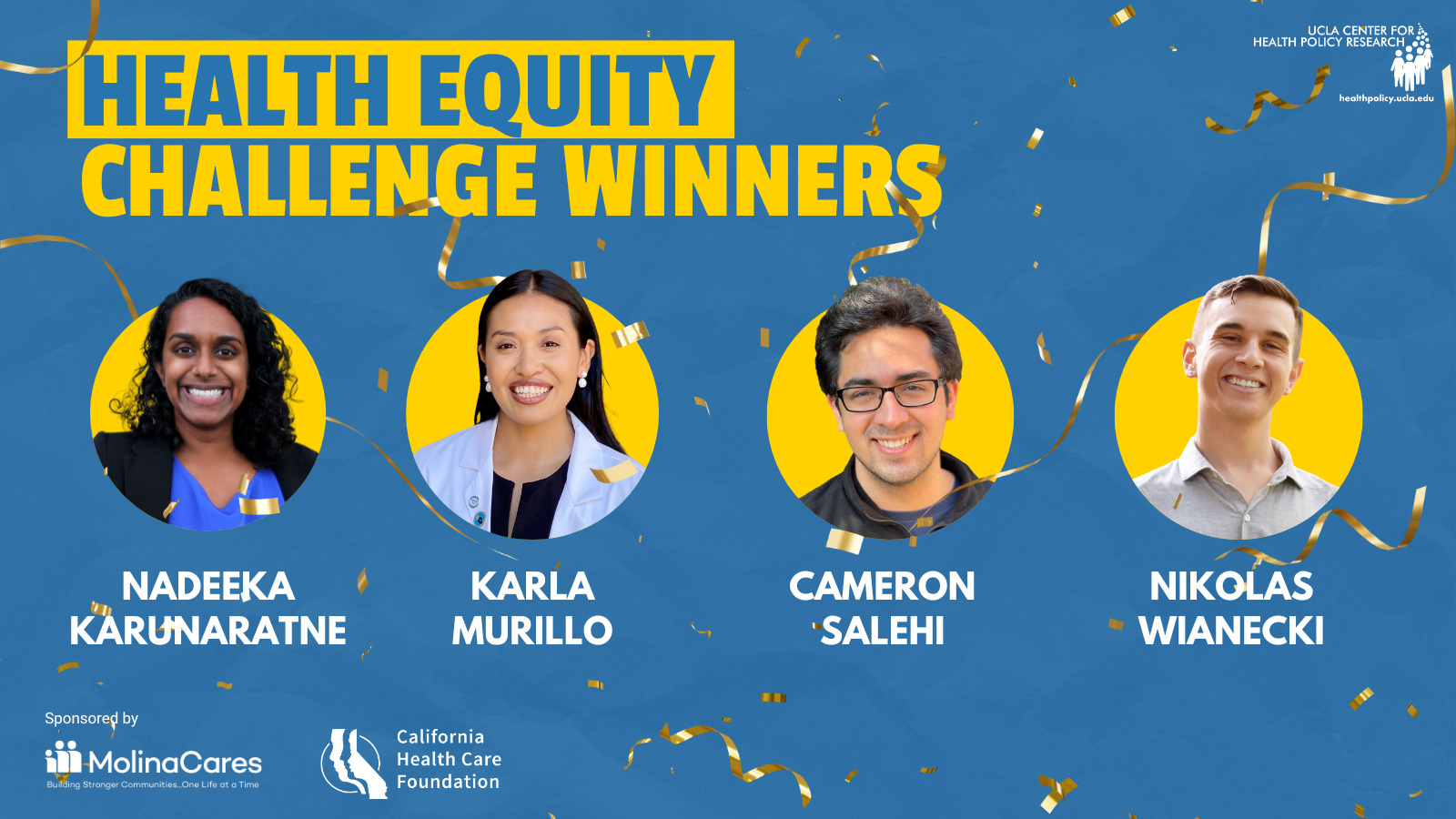Coming from a low-income community of color, I personally witnessed how generations of systemic racism and economic corruption have led to a powerful mistrust in the health care system.
Postpartum depression (PPD) is a silent struggle for many new mothers, but for South Asian women, cultural stigmas and generational pressures often exacerbate this already challenging condition. As a woman of color and a first-generation college graduate, I have walked a path shaped by the nuances of both my cultural heritage and my academic pursuits.
The scent of antiseptic and tapioca pudding wafted through the air. Placing the empty food tray on my borrowed cot, I glanced around my grandparents' shared room. Clunky metal beds, a suitcase full of clothes, and a bulletin board on the wall filled with doctor notes and medication lists.
Radiate Health is my UCLA Health Equity Challenge project that centers around an HIV self-testing kit tailored to the Latinx community that hopes to increase frequent testing, reduce the negative stigma around HIV, and increase HIV education.
Grandma Lul and Grandpa Ghebreab first came to live with my family when I was three years old. They were my mother's parents and traveled the same long path that brought my mother and father to the U.S. from a small country in the Horn of Africa, called Eritrea. I didn’t know it then, but over the years, my grandparents and I would form an unbreakable bond.
Steaming, juicy soup dumplings, spicy tender beef soup with thick knife-cut noodles, and refreshing iced boba milk tea with sugar adjusted so it’s not-too-sweet. These are some of the imagery that often pop into one’s mind when speaking about the San Gabriel Valley.
On a Monday morning in December 2002, the improper dismantling of a mortar shell by workers at a local metal recycler in Watts sent a 40-pound cannon round 1,000 feet into the air. On descent, it landed in the baseball field of David Starr Jordan High School, which stands directly adjacent to the facility. At the time, no students were present on the field (luckily).
When reflecting upon this quote, I pondered on the meaning of thrive. In various interpretations, thrive was defined as growth, prosperity, and bloom. For many communities, past, present, and evolving barriers make it challenging to thrive in systems that were not built with everyone in mind.
During my fourth year of medical school, someone I loved passed away from suicide. While I cycled through different stages of grief, I realized I had to stop asking myself, “What could I have done differently?” and instead start asking, “What can I do differently?”
I serendipitously ventured into the world of health education in 2014 as a sophomore at the University of Southern California (USC). As I walked through a sea of students during a campus club and student organizations fair, I was handed a flyer for the student organization Peer Health Exchange (PHE).
As a primary care doctor, I learned early in medical training that a small fraction of health is determined by clinic visits and hospital stays. Pills only work if you can afford them.
Remember, never give up — your voice resonates with power, and you possess the capability to make the world a better place and create a brighter tomorrow.
Standing just shy of five feet, my bà nội (grandma) was the living testament that great things come in small packages. As the heart of our Vietnamese immigrant family, she held us together with love and care poured into every traditional meal she made. Even after enduring a long 10-hour workday, she ensured our stomachs were just as full as our hearts, never once failing in her commitment to our family’s well-being.
On my first clinical rotation of medical school, I sat in the corner of a crowded resident workroom willing a thought to coalesce in my mind as I stared at a patient’s chart. I was so intimidated that I found myself trying to breathe more quietly. No one had greeted me yet that day as they whirled through their early morning tasks.
Finalists in the UCLA Health Equity Challenge proposed innovative measures to help those often underserved
Are you a UCLA graduate student with an original idea for improving health equity? Do you want to help a community organization win $50,000 to make your project come to life?
Winning projects address impacts of climate change, vision care for day laborers, and healing for victims of sexual and interpersonal violence
While LA County currently offers several employment-based re-entry services, they are all siloed and fragmented, each with their own requirements and conditions, making these services difficult to navigate. However, our pilot with ISLAH LA would be the first to integrate employment and behavioral health support within a peer-group environment in a trusted community-based setting.
I have always aspired to become a physician because I believe that doctors not only save lives but also have the power to transform lives and give people hope. However, after listening to the stories of my patients, I realized that I wanted to do something greater. I wanted to make a positive impact on my community.
I’m thankful to the Health Equity Challenge for allowing me to develop my leadership skills apart from my medical training. This opportunity has not only allowed me to better understand the needs of my community and shown me the power of collegiality in fighting for justice, but has also equipped me with a skillset to continue pushing for health equity in my future as a physician, both within and outside of the hospital.




















